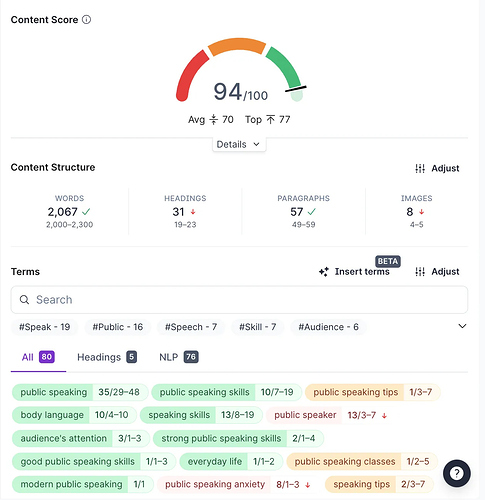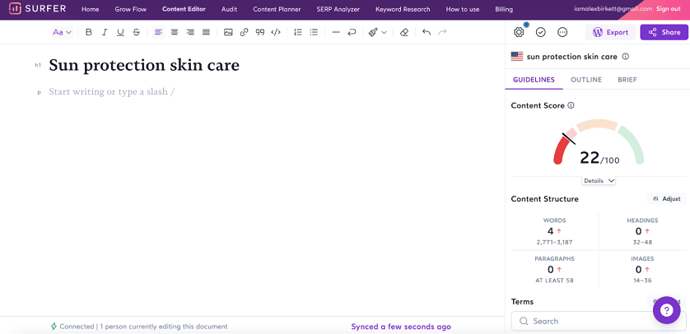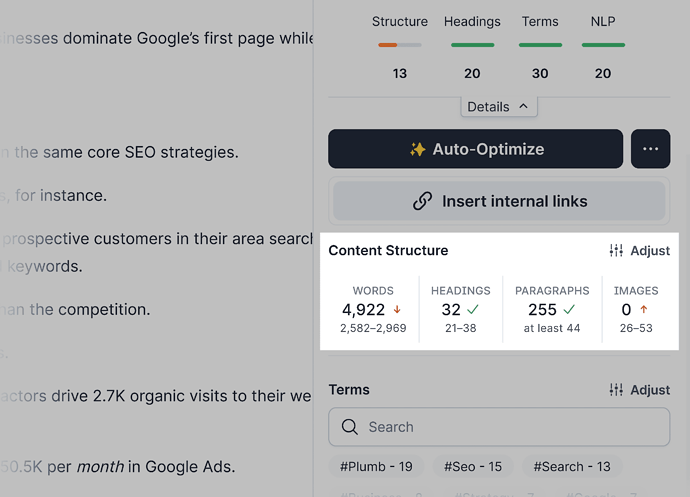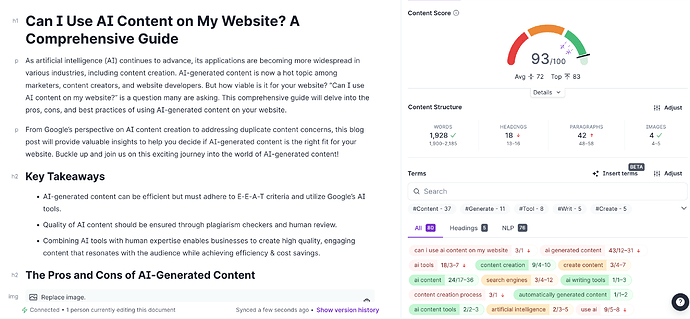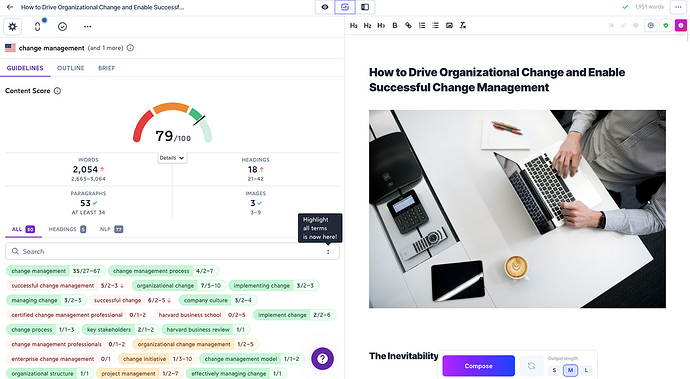I used to write with decent instincts. Decent headlines. Decent keyword guesses. Decent structure. But “decent” doesn’t rank.
I’d publish, wait, and refresh Google Search Console like it owed me something. Sometimes I’d hit page one. More often, I’d hover in no man’s land — page two or worse — wondering what I missed.
That’s when I tried Surfer SEO.
Not because I believed the hype, but because I was tired of second-guessing every blog post.
I’ve now used Surfer on over 20 pieces — new posts, old content refreshes, AI drafts, product reviews, even high-intent pages. Here’s exactly what I learned, where it’s worth your money, and where it falls short.
What Surfer SEO Really Does — and Why It Works
Surfer SEO doesn’t “boost rankings” on its own.
It gives you a blueprint based on the pages already ranking for your target keyword. You type in your main keyword, and it scrapes the top 10 or 20 search results.
Then it builds a writing guide: what phrases to include, how many headings to use, what the average word count is, and even which NLP keywords Google expects in content like yours.
Instead of writing in the dark, you write with a playbook. That’s the difference. No fluff. Just data-backed, competitive benchmarks.
My First Surfer Test: What Happened
I took a post that had been stuck at position 12 for five months. Decent traffic. Zero engagement. Didn’t crack page one.
I loaded it into Surfer’s Content Editor, which gave me a score of 39/100. The top-performing posts were hitting scores in the high 70s and 80s. That alone told me the gap.
So I:
- Reworked headings based on what was missing (it suggested I add 3 “how-to” subtopics)
- Rewrote intro and conclusion with intent-matching keywords
- Added 12 terms from the suggested list that weren’t anywhere in the original draft
- Boosted the word count by 500 words — but with useful sections, not fluff
Took me three hours total.
Two weeks later, I checked the ranking again. It was #5.
And that’s when I started running everything through Surfer before publishing.
How I Use Surfer SEO In My Workflow Now
Here’s exactly how I use it now — every week.
-
Keyword research and topical planning
I use Ahrefs to spot high-value keywords, then drop them into Surfer’s Keyword Planner for topical clusters and related terms. -
Content brief generation
I run the primary keyword in Surfer’s Content Editor and let it pull the SERP data. Then I read the top 5 pages manually to match tone and format. -
AI draft or manual outline
Sometimes I use Surfer AI to get a structured draft, especially for product comparisons or listicles. Other times I write from scratch using Surfer’s outline suggestions. -
Live optimization as I write
This is where Surfer shines. The score updates in real time. I hit the 70+ range before I even think about publishing. -
Final pass with SERP Analyzer
I compare my draft’s structure, internal links, and section depth against the top 3 competitors to spot any final gaps.
This cuts my writing and editing time in half. And the content ranks consistently.
What Happened When I Tried Scaling Content With Surfer
Things change when you go from testing to publishing 10–15 articles a month. That’s when I upgraded to the Scale plan — 100 content editors and 20 AI articles.
I built SOPs using Surfer’s Content Editor. Hired a junior writer. Gave them access. And here’s what surprised me:
Surfer actually trained them faster than I ever could.
Instead of coaching them on SEO structure, I just had them hit the 70+ score. That’s it. The results were clean, and I could focus on refining voice and strategy — not fixing broken basics.
Scaling content with Surfer didn’t dilute quality. It kept it consistent.
Where Surfer Falls Short
Let’s talk friction.
The UI is dense when you first log in. There’s a learning curve. If you’ve never worked with SERP data, it might feel like too much at once. But after two or three articles, it clicks.
The AI articles? Strong structure, weak tone. They’re usable, but only after you layer in voice, examples, and formatting. Don’t skip editing.
And the biggest one: no keyword rank tracking unless you’re on the Enterprise plan. That still bugs me. I use SERanking to fill that gap.
What Makes Surfer SEO Different From Other SEO Tools
I’ve used Clearscope, MarketMuse, Frase, and even Jasper’s built-in optimization.
Clearscope is clean but overpriced. MarketMuse feels like an SEO spreadsheet exploded. Frase tries to be Surfer, but the SERP suggestions often feel generic.
Surfer is different because it’s tactical and fast. It’s focused on what’s actually in the search results — right now.
It doesn’t try to be an all-in-one suite. It sticks to content — and nails it.
Who I Think Should Use Surfer SEO
This isn’t a tool for someone casually blogging once a month.
It’s for creators, marketers, writers, or agencies who are publishing with intent. If you’re writing for organic search traffic and want more control, Surfer delivers.
It’s even more valuable if you’re managing multiple writers. The Content Editor creates a shared standard everyone can follow. You’re not relying on “vibes” anymore.
And if you’re a freelancer? This makes your deliverables stronger and more billable. You can show clients exactly how your content stacks up.
Frequently Asked Questions About Surfer SEO
Can Surfer help me rank if I’m starting from scratch?
Yes. It helps you build content that competes, even if your domain isn’t strong yet. You’ll still need links and time — but you won’t sabotage yourself with poor structure.
Is Surfer AI good enough to use out of the box?
Not for publishing. But it’s good enough to get you 70% of the way. Then you inject voice, polish the flow, and hit publish faster.
Does Surfer replace other SEO tools?
Not fully. It replaces guesswork, not everything else. I still use Ahrefs for keyword research and SERanking for tracking.
How many articles can I optimize per month?
Depends on the plan. Essentials gives you 30. Scale bumps that to 100. And yes, you’ll use them once you see how well they work.
Final Verdict: Is Surfer SEO Worth It?
If you publish content and care about rankings, this is a no-brainer. I’ve used it for over a year now — weekly. It hasn’t just helped me rank better, it’s helped me write smarter.
You’re not guessing anymore. You’re measuring. You’re not “hoping” to rank. You’re building content to rank. Surfer isn’t for everyone. But if you’ve ever hit publish and wondered “why didn’t this work?” — this is your answer.
I’m not going back to writing without it.

